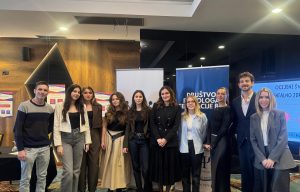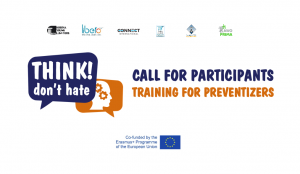The general objective of the project is to increase the employability of women between 18 and 30 years old from rural backgrounds, through the acquisition of digital communication skills, to be employed in the field of non-profit organizations. The consortium, after a careful analysis of needs carried out with the participation of stakeholders, has identified specific objectives functional to the achievement of the general purpose:
Specific Objective 1) Transfer to learners digital skills related to basic communication strategies. At the end of the training course focused on “digital communication strategies”, trainees will improve their communication skills by +60%;
Specific Objective 2) Enable trainees to adapt the acquired skills to the specificities of non-profit organizations. Through 6 months of practice in non-profit organizations, trainees will acquire specific skills in the field of digital communication for non-profit organizations.
Specific Objective 3) To develop the capacity of the consortium bodies and organizations belonging to the non-profit sector active in the VET field, by providing training courses focused on non-formal methodologies, innovative and based on a dual approach, bringing VET trainees closer to the world of work. Thanks to the workshop that will see the new professionals as protagonists, in the realization of a video course on “communication strategies of non-profit organizations”, which will be fully integrated within the training offer of the organizations of the consortium within online training platforms, the organizations will be able to increase the quality and accessibility of their training offer.
KICK-OFF MEETING IN ROME
On February 13, 2024, the kick-off meeting for the DIGITAL WOMMUNICATION project (ID.101092394) took place in Rome. The project is funded by the European Commission and coordinated by the Italian association SOS EUROPA. The meeting was attended by two delegates from each NGO in the partnership, including DIDEAS from Spain, BRAVO from Bosnia, PEL from North Macedonia, MLADIINFO from Montenegro, and KOSOVA YOUNG LAWYERS from Kosovo.In the preparatory phase of the kick-off meeting, work was done on preparatory activities to ensure a qualitative meeting, including:
- Collection of best practices by individual organizations to propose to the staff during the kick-off and introduce for the good governance of the project.
- Collection of methods and analysis indicators to propose within the kick-off meeting for use in preliminary analysis and subsequently in international and local activities aimed at testing the starting point and improvements achieved by the participants.
- Collection of proposals regarding impact indicators for the results of individual activities and the project to be proposed within the kick-off meeting.
The kick-off meeting was, first and foremost, an opportunity for the associations to get to know each other, share experiences, and discuss the upcoming project activities, sharing expectations and roles for each organization.
During the kick-off meeting, the involved organizations worked together on:
- Determining best practices within the staff for the good governance of the project.
- Defining methods and indicators to conduct preliminary/successive surveys after international and local activities aimed at testing the starting point and improvements achieved by the participants.
- Defining impact indicators for the results of individual activities and the project.
Further exploring the program of activities, learning outcomes, and the execution of tasks and responsibilities already defined in the identification and initiation phase.
The documents produced during the kick-off will be disseminated as project activity results and also to contribute to providing useful tools and inspiration for other organizations to use within their consortia and in the development of European project activity plans.

TRAINING COURSE ON DIGITAL COMMUNICATION STRATEGIES
From 03 to 07 June, the first training course on digital communication strategies of the DIGIWOMUNICATION project was held in Castellon de la Plana (Spain).
The training course was hosted by the Spanish association DIDEAS, which is in charge of facilitating all 5 days. The event was attended by 60 girls, between 18 and 30 years old, from rural areas of Italy, Bosnia, Macedonia, Montenegro and Kosovo.
DAY 1: The first day was dedicated to the presentation of the project and all its phases and to the presentation of the training course agenda. Subsequently, through the “HUMAN BINGO”, the participants got to know each other. The final part of the day was dedicated to sharing, through the digital tool Mentimeter, the expectations of the participants regarding the training course.
DAY 2: the morning was dedicated to an intense training session on marketing and specifically on digital marketing. The objectives of the session were:
- Understand the basics of digital marketing, including the definition, importance of digital assets, the difference between inbound and outbound marketing, and the concept of buyer personas and conversion funnels.
- Explore different digital marketing channels and analyze retention and retention strategies.
- Apply theoretical knowledge to real-world scenarios through the analysis of successful marketing campaigns.
- Develop critical thinking skills to formulate effective digital marketing strategies that align with business goals and target audience.
Next, we delved into how to create an effective and effective social media campaign. The participants, divided into groups, were tasked with developing a communication campaign for an ed-tech company called EPIC GROUP LAB Valencia, which offers entrepreneurship and technology courses to students aged 7 to 18.
DAY 3: The day was dedicated to the monitoring tools used to evaluate the effectiveness of communication strategies. In particular, the following topics were addressed:
- What is a Communication Plan?
- Tools to measure the impact of communication
- Methods for assessing the effectiveness of communication
- Digital Marketing Resources for Dissemination Campaigns
In the afternoon, the participants, always divided into groups, worked on how to create a communication strategy for an NGO, creating materials for different communication channels.
DAY 4-5 : Once the basics of marketing were understood, the focus was on the creation of the “Vademecum-Digital methods of communication to promote oneself in the world of work”. The last two days of the training were dedicated to the creation of the material, which will then compose the vademecum, one of the tangible results of the project. The participants worked divided into groups by nationality, each group chose a communication activity to be developed, (newsletters, podcasts, etc.) defining the objectives of the activity, the skills they are going to work, the list of tools needed. The handbook in English will be translated by the individual organizations and disseminated within their social profiles, within the website.

WORKSHOP VIDEO CREATION – COURSE ON “DIGITAL STRATEGIES FOR THE THIRD SECTOR”
From September 30 to October 4, the workshop “Video Creation – Course on Digital Strategies for the Third Sector” took place in Canj, Montenegro. The event saw the participation of 60 girls from Italy, Montenegro, Spain, Macedonia, Bosnia, and Kosovo. This intercultural and educational experience offered participants a unique opportunity to develop skills in digital communication applied to the third sector.
Workshop Details
The course focused on creating a video course consisting of 48 lessons, each produced by one of the participants. The activities were facilitated by an expert from the host organization, MLADIINFO, who guided the girls in exploring their skills and competencies, supporting them in creating effective and impactful digital content.
Activity Agenda
- Day 1: After an intercultural welcome breakfast, the participants shared their previous experiences, followed by the presentation of the workshop agenda and objectives.
- Day 2: Using the “Open Space Technology” methodology, the girls collaborated to structure the video course outline and strategically divide the lesson content, forming working groups.
- Days 3-5: The days were dedicated to recording the video lessons, focusing on content quality and production professionalism. The recording was divided into three phases, with each group contributing to the final product.
The workshop was not only a training moment but also an opportunity for cultural exchange and personal growth for the participants. Through international collaboration, the girls were able to develop not only technical skills but also soft skills such as teamwork, leadership, and intercultural communication. The event demonstrated how the new generations can actively contribute to the development of the third sector through the use of digital technologies, showing a tangible example of empowerment.



